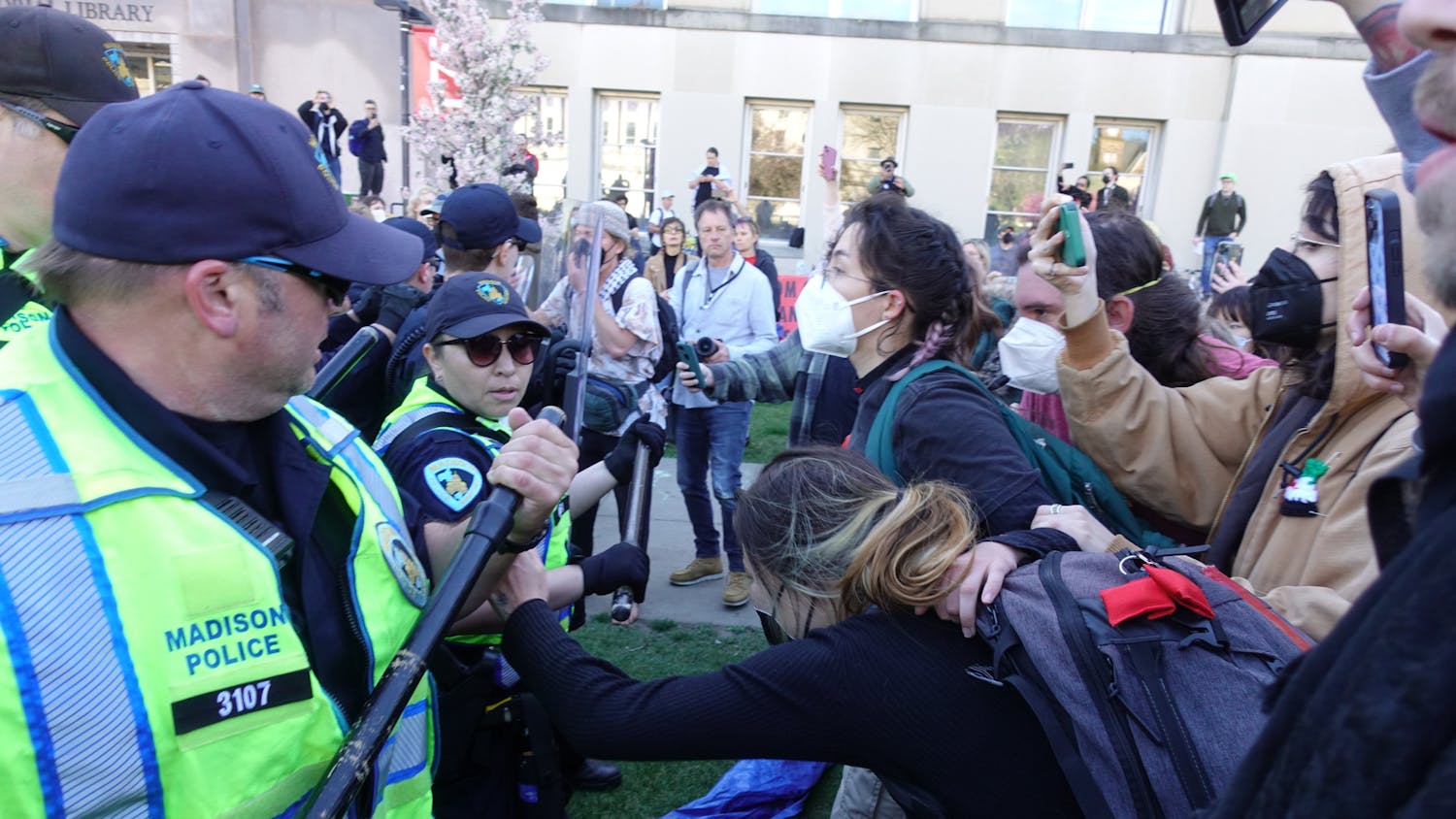In the late 1960s and early 1970s, the University of Wisconsin–Madison was shaken by a series of student protests against the Vietnam War and the use of force by responding authorities. In 1967, students amassed to protest the recruiting efforts on campus of the Dow Chemical Company, which made napalm that the United States used on the battlefield. What began as peaceful civil disobedience turned violent as city police officers with riot sticks forcibly removed students from today’s Ingraham Hall. The clash involved thousands and injured dozens. And in 1970, a bomb exploded next to Sterling Hall aimed at destroying the Army Math Research Center, killing a university physics researcher. These events hardened campus relationships and emboldened a new generation of steadfast pacifists.
The current protests in Hong Kong began with the aim to oppose the introduction of an extradition law amendment bill. If enacted, the bill would let Hong Kong authorities detain and extradite criminal fugitives who are wanted in territories, such as Taiwan and mainland China, with which Hong Kong does not currently have extradition agreements. Many were concerned that the bill would subject Hong Kong residents and visitors to Beijing’s jurisdiction, undermining the region’s autonomy and civil liberties. As the protests progressed, the protesters laid out five key demands, which include investigation into alleged police misconduct and resumption of democratic reforms. The U.S. House of Representatives recently passed the Hong Kong Human Rights and Democracy Act in light of these political developments.
Today, China poses formidable challenges for international businesses. Rising nationalism, growing universality of social media, and geo-political tensions have made it increasingly difficult for multi-national companies to stay apolitical in an increasingly sensitive and bullying China. The recent incident between the National Basketball Association (NBA) and China presents a difficult balancing between supporting democratic values and not upsetting a hugely profitable market of 1.4 billion consumers.
Hong Kong’s unrest illustrates the failure of the “One Country, Two Systems” model used by Beijing to govern the territory. Hong Kong protests echo the 1989 Tiananmen Square Incident, which is especially ironic as Communist China just celebrated its 70th anniversary this month. The problem of national identity may be more troubling. As feelings towards mainland China harden, some have initiated more radical calls for Hong Kong’s independence, as opposed to the proper implementation of the Basic Law that is supposed to protect the city’s relative autonomy.
A worrisome pattern has emerged as some protesters in Hong Kong have begun to act with greater ferocity. Hard-line protesters see themselves as being forced to put justice into their own hands in a system that lacks accountability. Large-scale marches have ended in violent confrontations, vandalism, and arson. Pro-democracy demonstrators have singled companies like Starbucks and Apple that they consider enemies of their movement, and vandalism and calls for boycotts have followed. Tourism numbers and financial markets have plunged in recent months, clear indications that months of violent clashes are decimating the city’s economy.
Most recently, the lack of an extradition treaty with Hong Kong and fear of compromising sovereignty have led to an unfathomable reluctance by Taiwan to exercise judicial jurisdiction over Chan Tong-kai, a Hong Kong citizen wanted the alleged murder of his girlfriend when the pair were traveling in Taiwan. Chan has lately expressed a willingness to turn himself in and face prosecution in Taiwan. That the administration of President Tsai Ing-wen immediately conceded to public criticism and is now willing to entertain the Chan’s request, despite initial political considerations, ought to be commended. As a beacon of Chinese culture and democracy, Taiwan continues to challenge Communist China to abandon authoritarianism and embrace political reform.
The rule of law and human rights are imperative to Hong Kong, just as continued order and prosperity. The demonstrations have far greater power when they are peaceful. That some protesters have resorted to violence can only be condemned, as must excessive force used by the police. To both protesters and police alike, radical violent methods do not help mitigate differences or resolve controversy. The Beijing authorities and Hong Kong government should respond to the protesters’ legitimate calls for democracy. Peaceful communication and dialogue serve the better course towards reconciliation and stability.
Alfred E. Tsai is J.D. candidate at the University of Wisconsin Law School and academic chair in the Student Association of Taiwan. The views expressed in this article are his only. Send all comments to opinion@dailycardinal.com.
The Student Association of Taiwan has contacted us to clarify that the views expressed in the article do not represent the opinion of the student organization. The author resigned from his position in the SAT on November 7, after the publication of this article.






